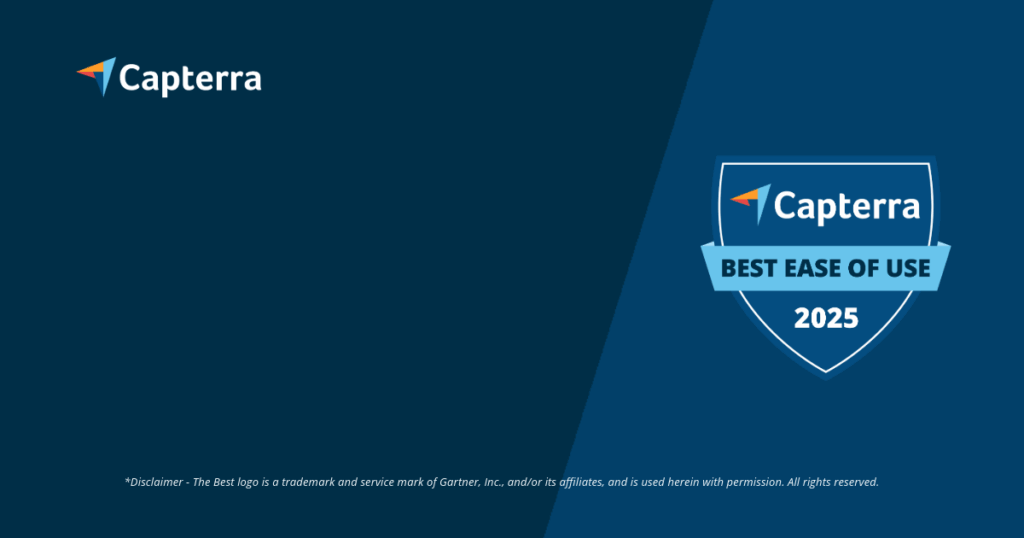Digitaler Status Quo: Eine Branche zwischen Potenzial und Komplexität
Die Digitalisierung im deutschen Handwerk schreitet voran: Bereits 68 % der Betriebe setzen digitale Technologien ein. Der größte Vorteil wird dabei mit 83 % in der Zeitersparnis gesehen. Dennoch bleibt die Baubranche im Digitalisierungsindex im Branchenvergleich das Schlusslicht. Die Gründe sind vielfältig: 71 % der Unternehmen nennen hohe Investitionskosten als Hürde, und ganze 81 % halten viele digitale Anwendungen für zu komplex oder ungeeignet für den eigenen Betrieb. Dies zeigt eine deutliche Lücke zwischen dem erkannten Potenzial und der praktischen Umsetzbarkeit. Viele Betriebe nutzen zwar Messenger-Dienste wie WhatsApp für die interne Kommunikation (91 %), scheitern aber an der Einführung durchgängiger digitaler Prozesse. Der Schlüssel liegt daher in einfachen, kosteneffizienten Lösungen, die keine intensive Schulung erfordern. Die Optimierung von Arbeitsabläufen beginnt mit der Wahl der richtigen digitalen Werkzeuge, die den Arbeitsalltag erleichtern, statt ihn zu verkomplizieren. Die nachfolgenden Abschnitte zeigen, wie eine gezielte Prozessoptimierung gelingt.
Bündeln Sie die Kommunikation und beenden Sie das Zettelchaos
Unzählige WhatsApp-Gruppen, verlorene Notizzettel und mündliche Absprachen führen zu Missverständnissen und kosten täglich wertvolle Zeit. Eine Studie zeigt, dass 80 % der Handwerksbetriebe ihre Effizienz durch digitale Projektmanagement-Tools deutlich steigern konnten. Der erste Schritt zur Effizienzsteigerung im Handwerk durch Software ist die Zentralisierung der gesamten Projektkommunikation. Statt Informationen über verschiedene Kanäle zu streuen, werden alle Absprachen, Fotos und Dokumente an einem einzigen, projektbezogenen Ort gebündelt. Dies reduziert den administrativen Aufwand um bis zu 15 %. Eine zentrale Plattform stellt sicher, dass alle Beteiligten – vom Büro bis zur Baustelle – jederzeit auf denselben, aktuellen Informationsstand zugreifen. Das schafft nicht nur Klarheit, sondern legt auch den Grundstein für eine lückenlose und papierlose Baudokumentation. So wird die Basis für automatisierte Berichte und rechtssichere Nachweise geschaffen.
Automatisierte Bautagesberichte: Sparen Sie bis zu 70 % Zeit
Die Erstellung von Bautagesberichten ist eine verpflichtende, aber oft zeitaufwendige Aufgabe. Ein Bauleiter verbringt damit durchschnittlich 5 Stunden pro Woche. Eine digitale Bautagebuch-App reduziert diesen Aufwand um bis zu 70 %, was einer jährlichen Ersparnis von rund 160 Arbeitsstunden oder 12.800 € entspricht. Anstatt Notizen und Fotos auf der Baustelle zu sammeln und später im Büro mühsam abzutippen, erfolgt die Erfassung direkt mobil. Hier ist eine typische Aufschlüsselung der erfassten Daten:
- Automatische Wetterdaten per Klick
- Anwesende Personen und Firmen
- Eingesetztes Material und Maschinen
- Dokumentation des Baufortschritts mit Fotos und Notizen
- Erfassung von besonderen Vorkommnissen oder Mängeln
Aus diesen Informationen wird automatisch ein fertiger, rechtssicherer Bericht generiert. Diese Form der Prozessoptimierung steigert nicht nur die Effizienz, sondern minimiert auch Fehler, die bei der manuellen Übertragung von Daten entstehen. Die so gewonnene Zeit kann direkt in die wertschöpfende Arbeit auf der Baustelle investiert werden.
Rechtssichere Zeiterfassung: Eine Pflicht einfach erfüllen
Seit einem Urteil des Europäischen Gerichtshofs (EuGH) ist eine systematische Arbeitszeiterfassung für Arbeitgeber in der EU Pflicht. Der deutsche Gesetzgeber plant zudem die verpflichtende elektronische Erfassung, mit Übergangsfristen je nach Betriebsgröße. Für Betriebe bedeutet dies, dass der klassische Stundenzettel bald ausgedient hat. Eine digitale Zeiterfassung im Handwerk ist keine Kür mehr, sondern eine Notwendigkeit. Software-Lösungen ermöglichen es Mitarbeitern, ihre Arbeitszeiten – inklusive Beginn, Pausen und Ende – mit wenigen Klicks mobil zu erfassen. Dies sorgt für eine lückenlose und gesetzeskonforme Dokumentation ohne manuellen Aufwand. Die erfassten Daten stehen in Echtzeit zur Verfügung und können direkt für die Lohnabrechnung und die Nachkalkulation von Projekten genutzt werden. So wird aus einer gesetzlichen Pflicht ein Werkzeug zur Effizienzsteigerung.
Digitales Mängelmanagement: Qualität steigern, Kosten senken
Mängel auf der Baustelle sind unvermeidbar und ihre Behebung ist oft mit hohem Koordinationsaufwand verbunden. Die manuelle Verwaltung mit Listen und E-Mails ist fehleranfällig und langsam. Eine Mängelmanagement-Software optimiert diesen Prozess erheblich und sorgt für eine um bis zu 40 % schnellere Behebung. Der digitale Arbeitsablauf ist einfach und effizient:
- Mangel erfassen: Direkt auf der Baustelle wird der Mangel mit Foto, Notizen und genauer Verortung im digitalen Plan dokumentiert.
- Aufgabe zuweisen: Der Mangel wird digital einem Verantwortlichen zugewiesen, inklusive einer klaren Frist für die Behebung.
- Status nachverfolgen: Alle Beteiligten sehen jederzeit den aktuellen Bearbeitungsstatus (z.B. „offen“, „in Arbeit“, „erledigt“).
- Bericht erstellen: Nach der Behebung wird mit einem Klick eine rechtssichere Mängelfreimeldung inklusive aller Nachweise generiert.
Diese transparente Vorgehensweise reduziert Missverständnisse und sichert die Beweiskraft im Streitfall. Eine strukturierte Aufgabenverwaltung sorgt dafür, dass nichts übersehen wird und stärkt die Qualitätssicherung nachhaltig.
Fazit: Mit einfacher Software zu mehr Effizienz und Rechtssicherheit
Die Effizienzsteigerung im Handwerk durch Software ist kein fernes Zukunftsszenario, sondern eine konkrete Notwendigkeit, um wettbewerbsfähig zu bleiben. Die größten Hürden sind dabei nicht die Technologie selbst, sondern hohe Kosten und die Komplexität vieler Anwendungen. Der Schlüssel zum Erfolg liegt in einer Software, die sich an den Bedürfnissen der Anwender orientiert: einfach, intuitiv und ohne Schulungsaufwand. Valoon setzt genau hier an. Durch die Integration in den gewohnten WhatsApp-Messenger entfallen Akzeptanzprobleme und lange Einarbeitungszeiten. Ihr Team arbeitet weiter wie bisher, während im Hintergrund automatisch eine rechtssichere Dokumentation entsteht. Diese Einfachheit ermöglicht eine enorme Zeitersparnis und sorgt für lückenlose Nachweise, ohne die Mitarbeiter auf der Baustelle zu belasten. So wird die Digitalisierung zur echten Unterstützung im Arbeitsalltag. Buchen Sie jetzt Ihre kostenlose Demo und erleben Sie, wie unkompliziert Effizienz sein kann.
More Links
Statista bietet einen umfassenden Überblick über Statistiken und Fakten zur Digitalisierung im Handwerk.
Zentralverband des Deutschen Handwerks (ZDH) informiert über den Fortschritt der Digitalisierung im Handwerk in Deutschland.
Handwerk Digital stellt das Digitalisierungsbarometer vor, das den Fortschritt der Digitalisierung im Handwerk misst.
Hasso-Plattner-Institut (HPI) veröffentlicht eine Studie zum Status Quo der Digitalisierung im Handwerk.
Institut der deutschen Wirtschaft Köln (IW Köln) bietet eine Broschüre mit Handlungsempfehlungen zur Ressourceneffizienz 4.0 für das Handwerk.
Bundesministerium für Wirtschaft und Klimaschutz (BMWK) informiert über Förderprogramme für das Handwerk.
KfW präsentiert den Digitalisierungsbericht 2024 zum Thema Digitalisierung im Mittelstand.
Statistisches Bundesamt (Destatis) stellt offizielle Statistiken und Informationen zum Handwerk bereit.
Wikipedia bietet einen Artikel zur Digitalstrategie Deutschlands.
Deutsche Handwerks Zeitung veröffentlicht Artikel und Nachrichten zur Digitalisierung im Handwerk.
FAQ
Wie steigert Software die Effizienz auf der Baustelle?
Software steigert die Effizienz, indem sie manuelle und zeitaufwendige Prozesse digitalisiert und automatisiert. Dazu gehören die zentrale Kommunikation statt unzähliger Anrufe und Nachrichten, die mobile Erfassung von Daten für Bautagesberichte, die digitale Zeiterfassung und ein strukturiertes Mängelmanagement. Dies reduziert den administrativen Aufwand, minimiert Fehler und spart nachweislich Zeit und Kosten.
Müssen meine Mitarbeiter eine neue App lernen?
Nein, mit Valoon nicht. Unsere Lösung integriert sich direkt in WhatsApp, ein Werkzeug, das 91 % der Handwerker bereits für die interne Kommunikation nutzen. Die Mitarbeiter auf der Baustelle benötigen keine neue App und keine Schulung. Sie kommunizieren wie gewohnt, während Valoon im Hintergrund alle relevanten Daten rechtssicher verarbeitet.
Ist die Dokumentation per Software rechtssicher?
Ja. Eine gute Handwerkersoftware sorgt für eine lückenlose und nachvollziehbare Dokumentation. Durch Zeitstempel, die genaue Zuordnung von Fotos und Kommentaren zu einem Projekt und die unveränderbare Speicherung in der Cloud entsteht ein beweissicherer Nachweis. Dies ist bei Streitigkeiten, Mängelansprüchen oder Prüfungen durch Behörden entscheidend.
Was passiert, wenn auf der Baustelle kein Internet verfügbar ist?
Gute mobile Softwarelösungen wie Valoon sind offline-fähig. Ihre Mitarbeiter können auch ohne aktive Internetverbindung alle notwendigen Informationen und Fotos erfassen. Sobald das Gerät wieder online ist, werden die Daten automatisch synchronisiert, sodass keine Informationen verloren gehen.
Wie schnell lässt sich eine solche Software im Betrieb einführen?
Die Einführung von Valoon ist extrem schnell, da sie auf vorhandenen Werkzeugen aufbaut. Die Einrichtung der Projekte im Büro dauert nur wenige Minuten. Da die Mitarbeiter auf der Baustelle keine neue App installieren oder lernen müssen, kann der Betrieb quasi sofort starten und von den Vorteilen profitieren.
Für welche Betriebsgröße eignet sich eine Handwerkersoftware?
Moderne, cloudbasierte Software eignet sich für Betriebe jeder Größe. Gerade kleine und mittlere Unternehmen profitieren von der Effizienzsteigerung, da sie oft weniger administrative Kapazitäten haben. Durch flexible Preismodelle, wie das von Valoon, bei dem nur Büro-Nutzer zahlen, ist der Einstieg auch für kleine Teams wirtschaftlich sehr attraktiv.



